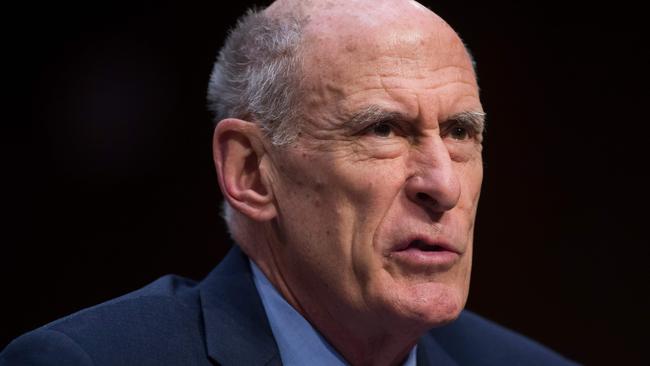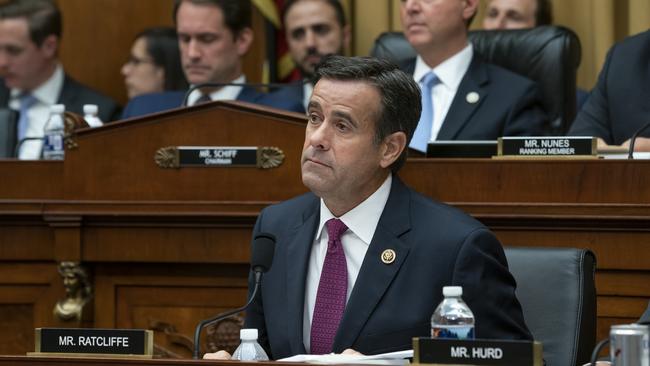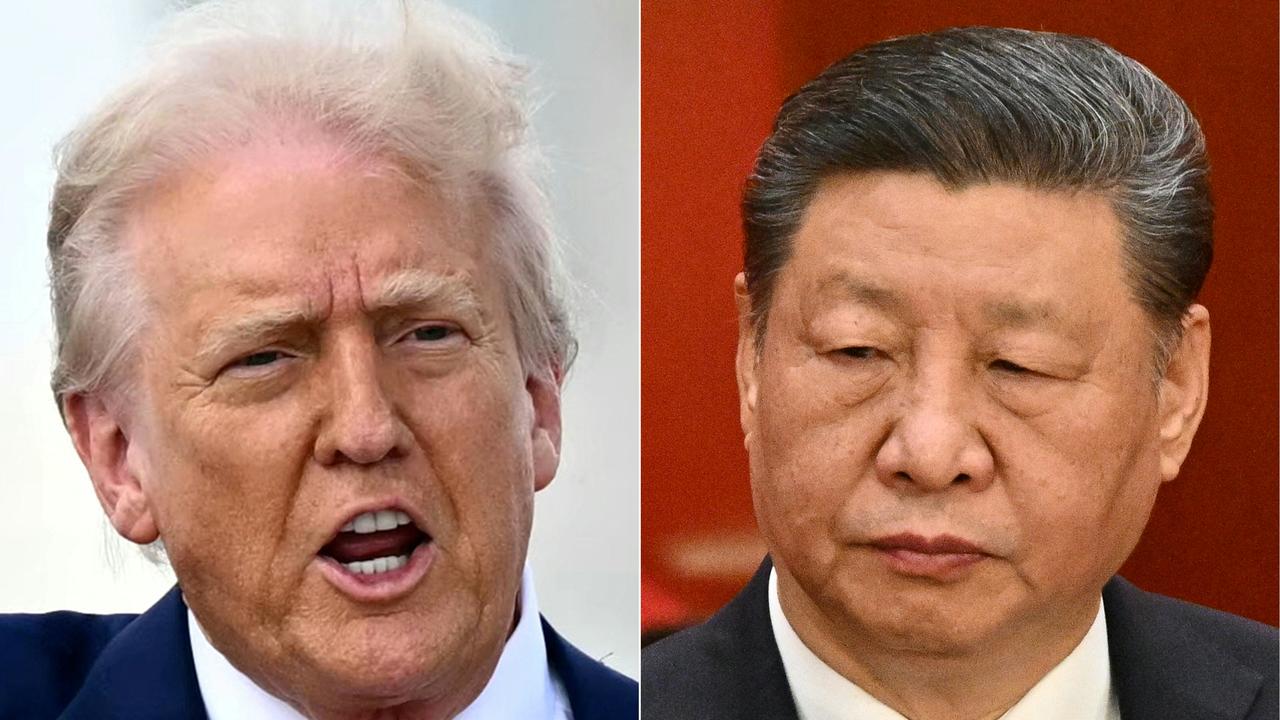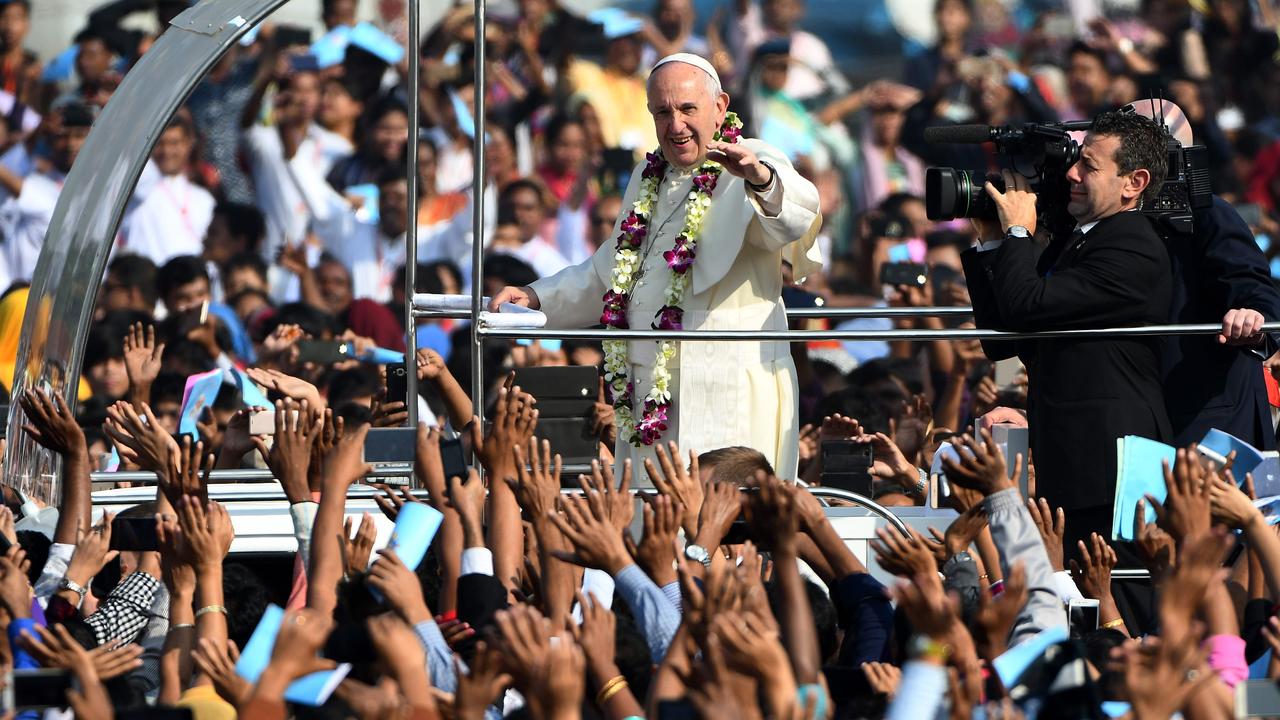US intelligence chief Coats quits
US Intelligence chief Dan Coats, who has tangled with Donald Trump over how to deal with the threat from Russia, has quit.

Donald Trump said yesterday that Director of National Intelligence Dan Coats, who has tangled with the US President over how to deal with the threat posed by Russia, is leaving his post.
Mr Trump said he would nominate Representative John Ratcliffe, a Texas Republican, to succeed him. Mr Ratcliffe has been praised by Mr Trump’s allies for his strident questioning of Robert Mueller over the former special counsel’s decision to draw no conclusion on whether the President obstructed justice in his report on Russia’s interference in the 2016 election.
The President wrote on Twitter that Mr Coats, who has served in the position since March 2017, will step down on August 15. A former Republican senator from Indiana and a longtime Russia critic, the 76-year-old at times challenged the wisdom of Mr Trump’s interest in improved relations with President Vladimir Putin of Russia.
Mr Trump, who has criticised his intelligence chiefs in the past, thanked Mr Coats “for his great service to our country”.
Mr Ratcliffe, 53, is a former US attorney for the eastern district of Texas who was elected to the House of Representatives in 2014. He serves on the house intelligence and judiciary committees and has worked to highlight cybersecurity threats to critical infrastructure while in congress.

At last week’s hearing, where representatives questioned Mr Mueller about his report outlining a series of episodes in which Mr Trump allegedly tried to interfere in the investigation, Mr Ratcliffe accused the former special counsel of violating standard prosecutorial procedure. “It was not the special counsel’s job to conclusively determine Donald Trump’s innocence or to exonerate him because the bedrock principle of our justice system is a presumption of innocence,” he said.
The White House had floated names of potential replacements for Mr Coats in recent days to Republican leadership in the Senate before settling on Mr Ratcliffe. The Senate’s Republican majority is expected to confirm Mr Ratcliffe barring any major obstacles, though several Democratic aides said he was likely to draw little support from across the aisle.
Senate minority leader Chuck Schumer tweeted that it was clear Mr Trump had chosen Mr Ratcliffe “because he exhibited blind loyalty ... with his demagogic questioning of Mueller”.
“If Senate Republicans elevate such a partisan player to a position requiring intelligence, expertise & non-partisanship, it’d be a big mistake.”
Mr Coats’s term was marked by more aggressive military and espionage efforts by China, tensions with Iran after the US exited the 2015 nuclear pact, and a US initiative aimed at eventual detente with North Korea.
He has been especially critical of Russia’s move in 2014 to annex Crimea from Ukraine and Moscow’s efforts to interfere in US elections, which he warned last year were ongoing.
He helped coordinate interagency efforts to deter Russia from interfering in last year’s midterm elections. This month, as likely one of his last moves before he leaves, Mr Coats established an election-threats group to better synchronise election-security efforts across the government.
The Office of the Director of National Intelligence was created in 2004 to ensure that agencies coordinate and share information.
Mr Coats and other intelligence chiefs faced criticism earlier this year from the President over their views on the seriousness of the threat posed by Iran and the challenges facing any deal on nuclear weapons with North Korea.
Along with other intelligence officials, Mr Coats testified before a Senate committee that officials didn’t believe Iran was developing a nuclear weapon. The following day on Twitter, Mr Trump contradicted him and said “intelligence agencies that don’t recognise the threat are misinformed”.
At other times, too, Mr Coats has demonstrated the gap between the President and his intelligence chiefs. At a summit meeting in Helsinki last year, Mr Trump seemed to give equal weight to duelling assertions from US intelligence officials and Mr Putin. Intelligence agencies concluded that Russia interfered in the 2016 elections, while Mr Putin denied that was the case.
At a subsequent event in Aspen, Mr Coats seemed unaware Mr Trump had invited Mr Putin to another summit meeting, saying “Say that again?” during an onstage interview. “That’s going to be special.”
The Wall Street Journal



To join the conversation, please log in. Don't have an account? Register
Join the conversation, you are commenting as Logout